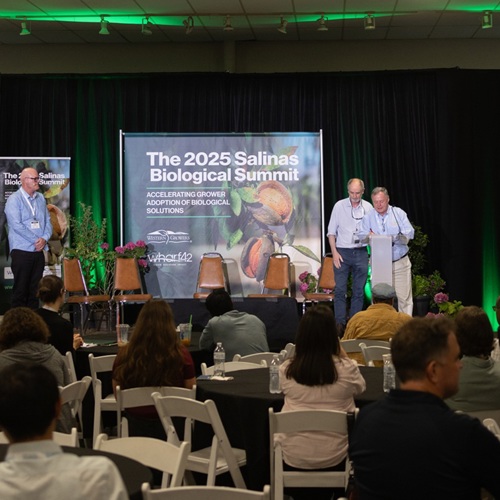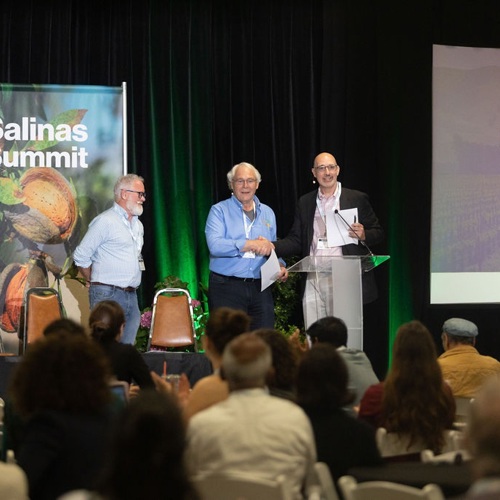Producing more than 90 percent of the USA’s processed tomatoes and over a quarter of the world’s total, processed tomato tonnage, California’s tomato growers are among the most innovative, resourceful, and efficient farmers in the world. Yet like many other crops, disease and pests are common.
In Platform10's Tomato Field Trials, we'll be targeting key diseases including;
- Beet leafhopper vectors Beet curly top geminivirus. Curly top-infected plants turn yellow, leaves roll upward and become stiff.
- Tomato spotted wilt virus (TSWV) can cause young plants to wilt and eventually lead to plant death. Ringspots and a calico pattern can also be seen on ripe tomato fruit in red, orange and yellow colors. TSWV is transmitted by various species of thrips, including WFT, Frankliniella occidentalis, the onion thrips, Thrips tabaci, and the chili thrips, Scirtothrips dorsalis.
The Tomato Field Trial Process
Grower Trial Implementation
Efficacy Data. Based on the mode of action (feeding deterrent, contact active, induced systemic resistance, mating disruption, etc.) data will be collected on pests and disease incidence, damage ratings, yield, product quality, effects on nontarget organisms including soil microbes** and the ability to avoid using one or more chemical product applications. Results may be published in academic journal (eg. Arthropod Management Tests (AMT) or Plant Disease Management Reports (PDMR)). Protocols will be designed in consultation with the applying company to assess how the product works when incorporated into a more integrated farming system.
**Microbial soil health data. Soil samples may be taken by a third party before and after testing and will be sent to a suitable laboratory to determine effects on the soil microbiome. Metrics typically assessed are microbial diversity and quantity, types of microorganisms (pathogens, nitrogen fixation, carbon sequestration, etc.
What is Beet leafhopper?
In each crop field trial, we look at one key disease impacting on growers. In this edition, it's Beet leafhopper.
The most severe damage to tomato crops occurs when the beet leafhopper transmits curly top virus. The leafhopper picks up the virus while feeding on infected weeds in the spring. As infected leafhoppers move into cultivated fields and gardens they spread the virus to all plants they feed on. Leafhoppers can transmit the virus to an uninfected host even if they only feed for a brief period (minutes).
A virus-infected leafhopper will transmit the virus for the duration of its life, often resulting in long distance spread of the virus, but does not pass the virus on to its progeny in utero.
The Platform10 Field Trial program has identified Beet leafhopper as a key pest to address.
The Growers
Platform10 are delighted to be working with outstanding Western Grower members.

Don Cameron
Don is a graduate of California State University, Fresno with a degree in Biology. Since 1987, Don has been the Vice President and General Manager of Terranova Ranch, Inc. located 25 miles southwest of Fresno, California. Terranova farms approximately 6,000 acres, in addition to 1,500 acres custom farmed for other clients. The farm has a mix of conventional, organic and biotech field crops including conventional and organic processing tomatoes, peppers, onions, seed product, corn and a diversity of other annual crops. Perennial crops grown consist of walnuts, wine grapes, almonds, pistachios and olives for oil. There are 25 total crops grown on the farm. Furthermore, Don owns and farms Prado Farms located in Fresno County.
What's Next?
We will be posting updates on the progress of every field trial on this website. Timings will depend on crop cycles and we will only update when meaningful data is available.
If you believe you have a product that can help address the disease challenges identified above, please email platform10@salinas-summit.com
Our field trial programs are ongoing. Platform10 recognizes the importance of emerging science and research and is keen to support biopesticide companies looking to commercialize that science and research and take it to market.










